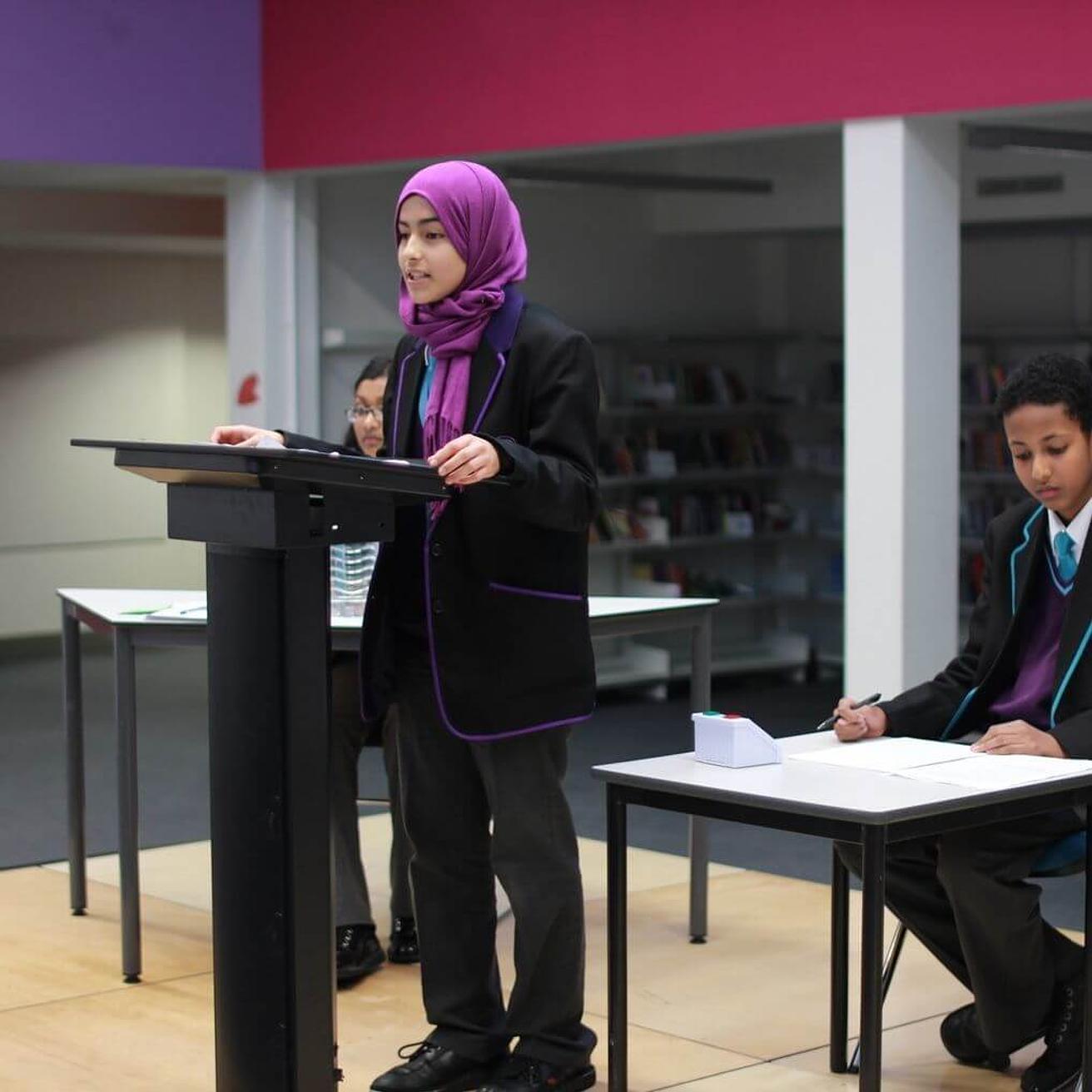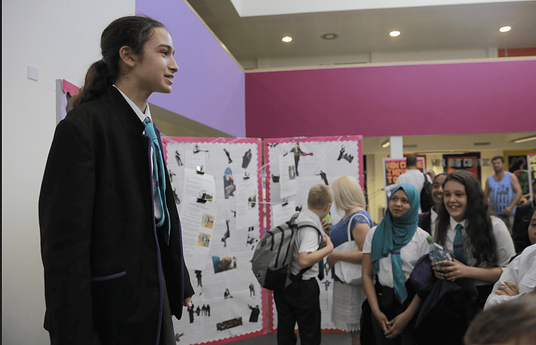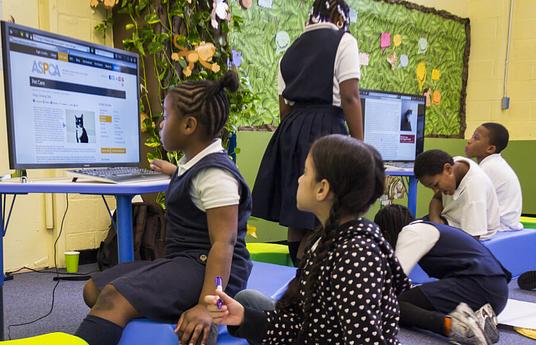Do your students talk too much? We want to get them talking even more! We’re not talking about the kind of low level disruption or shouting out that wastes precious learning time and grinds your gears in the classroom, but rather the kind that sparks deep learning, critical and collaborative thinking, and self expression.
If you’re searching for tried and tested ways of increasing oracy in your classroom, we’ve rounded up 6 innovative, impactful and scalable approaches to get your kids talking.
Transform School Into A Talk Rich Environment
“What if silence wasn’t always the sign of a great classroom? What if all young people found their voice?” This is the question that drives the work of Voice 21, an organization working to raise the profile of oracy in education and develop the capacity of all teachers to bring oracy into their classes.
It all began with School 21, in East London, which opened in 2012 with the express aim of preparing kids for the 21st century. Oracy is central to this vision; it’s woven throughout the school in elements such as assemblies reimagined as discussion circles, talk-rich classrooms and portfolio presentation evenings. Spoken language skills are threaded throughout the school career; the youngest children are taught storytelling techniques and from age 8 all pupils deliver TED-style talks to a real audience, giving them an abundance of opportunity to practise effective oracy and to find their voice.
See how Voice 21 can help to bring oracy to your classroom
Make The Switch To Student Led Teaching
Born in Mexico, Redes de Tutoria is an educational movement and learning network founded on personalized dialogue, reflection and community presentations. Redes de Tutoria is radically different to a traditional ‘sage on the stage’ model of teaching. Here, each student becomes learner, expert, professor and peer mentor. Study is self directed and each module is finished with the student presenting their expertise to the class, allowing for regular practice of oracy skills. With repeated practice, oracy is normalized, spoken language can improve and student confidence, self esteem and love for learning is boosted as students find that their words have power and potential. Discover how passion based presentations can transform learning in your school.
Promote Autonomy To Get Kids Talking
SOLEs sprung from Sugata Mitra’s ‘Hole in the Wall’ experiment in New Delhi which sparked global interest in self-organised learning. This approach lends itself to developing the social and emotional aspect of oracy, learning to listen and respond, to work collaboratively and to orate confidently.
In SOLEs, small groups of children are given a ‘Big Question’ to fire up curiosity. The students then organize themselves into small groups and work collaboratively to find an answer using the Internet. The magic is that, without an easy answer, Big Questions foster interdisciplinary learning and establish a deep, meaningful context for exploration. With no simple answer, debate and discussion are inevitable! The group of students then synthesize the information they’ve gathered and present their findings to their peers. Give your class more autonomy in their learning and watch the conversation unfold. Find out more here.
Encourage Enquiry For Deep Discussion with Philosophy for Children
It’s imperative that young people emerge from education able to think for themselves and to think collaboratively in a critical, caring way. Philosophy for Children is an enquiry-based pedagogy that enhances critical and collaborative thinking. This approach could be used to practice the cognitive strand of oracy, which involves clarifying and summarizing, reasoning, and adapting language for a given audience.
Enquiry centres around philosophical questions that the children themselves create, relating to important issues in life such as ‘freedom’, ‘honesty’ or ‘evil’, prompted by an engaging stimulus like a story, song or photograph. In contrast to teacher-led learning, this dialogic approach provides ample opportunity for children to refine and articulate their ideas by asking and exploring big questions like ‘what is freedom?’ When learning oracy skills, this can be key, as more talk time means more opportunity to orally rehearse ideas. Research shows that Philosophy for Children can have a positive impact on listening, collaborative and expressive language skills, social skills and children’s self-confidence, particularly when discussing ideas. Could your class be the Platos of the future?
Use The Power Of Pictures To Prompt Discussion
Picture of the Day is a simple and effective way for students to practice important reading skills by analysing pictures rather than text. It involves students looking closely at a picture and answering two key questions: what can I see and what do I think? The learners must make observations and inferences justified with evidence and then share these with their peers. Through questioning and discussion, students are encouraged to develop their ideas and are supported to become critical thinkers.
The magic of this approach is that in using a picture rather than a piece of writing, all students have an equal opportunity to share their ideas without being restricted by their reading level. For children whose home language differs from the language of the classroom, Picture of the Day can be an especially powerful tool, as it can support learning of new vocabulary and embolden them to speak up in class. Find out how images can transform literacy and oracy in your school.
Get Your Class To Act Up
Oracy is not only about what you say, but also the way in which you say it. Drama can be a great tool to explore and get comfortable with the physical aspect of oracy. Acting brings the opportunity to embody different characters which lends itself beautifully to experimentation with body language and vocal expression.
Public speaking is a number one fear for so many adults and young people. But drama can be a fun and safe way to practice the paralinguistic elements of oracy, like gesture, eye contact, tone and stage presence, as well as linguistic features like effective word choice, grammar and projection. 10 Minute Plays provides an opportunity to integrate more drama into your everyday classes. Whether you’re teaching history or science, discover how to use this approach to put spoken language skills in the limelight.




